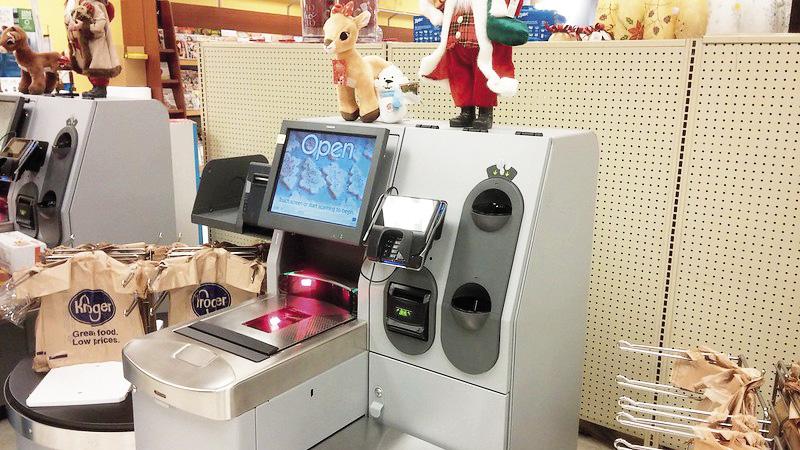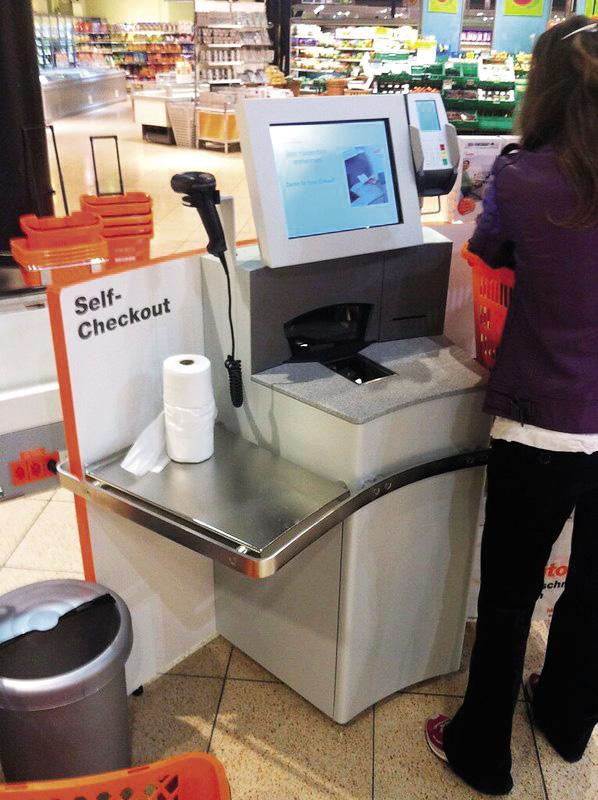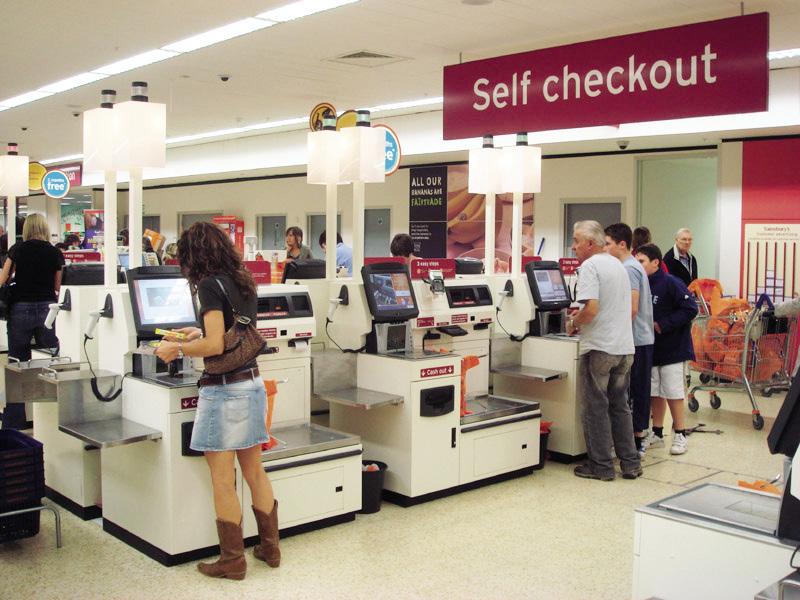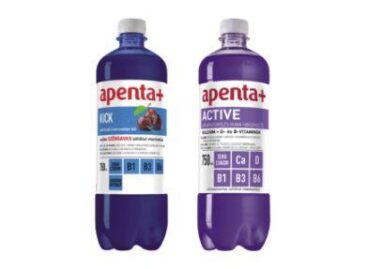Self-checkouts also need a better strategy to succeed
Grocery Dive’s report on self-service checkouts and Mordor Intelligence’s forecast suggest that the self-service checkout market can grow by an average of 10.2% per year between 2024 and 2028.
This article is available for reading in Trade magazin 2024/5
Low on staff? Let the machine do the work!
Despite what the general public thinks, the proliferation of self-checkouts is a testament to the operational benefits they offer to retailers – namely efficiency and cost-cutting. Yes, many shoppers would prefer to see a flesh-and-blood cashier at the checkout, but retailers still have difficulties in finding quality staff, and self-service checkouts allow them to serve more customers without having to pay more people.

Benefits outweigh the difficulties
Improvements are needed
Invented back in the 1980s and written off by the industry not so long ago, the self-service checkout technology is far from perfect, partly because the introduction of self- checkouts has been sudden, with its development taking place in practice in front of hundreds of millions of consumers at a time. For retailers, one of the biggest risks of self-service checkouts is that shoppers may – either on purpose or by accident – leave the store with goods they haven’t paid for. Walmart, Costco, Target, Wegmans and Booths are beginning to rethink their self-checkout strategies because of this. However, Stewart Samuel, IGD’s director of retail futures has told: advanced cameras and artificial intelligence (AI) can help to solve this problem.

Theft prevention is one of the main areas of development
Retailers must keep up with new innovations
Kroger stores use Everseen’s AI-based system to detect when a customer hasn’t scanned an item. The system warns the shopper in a friendly manner and alerts a store employee if the customer fails to do it upon request. While well-intentioned advice can help prevent theft, it is important that shoppers aren’t deterred by messages designed to remind them to behave appropriately. To make it easier to scan and pack products, trials are underway with technology that recognises products, saving shoppers the hassle of PLU codes, while others are trying to use AI to estimate the age of shoppers when buying age-sensitive products.
Enough shop assistants
Many retailers see self-checkouts as a way to manage congestion rather than as a choice offered to shoppers. During busy periods, when long queues form at the checkouts, shoppers may feel they have no choice but to use self-service checkouts, which some of them don’t like. While technology can help to cut down on theft at self-service checkouts, retailers still need to direct dedicated staff to the self-checkout zone to reduce the loss of goods. A single worker isn’t enough for overseeing the self-service checkout, as they mayn’t be in the right place to see everything, and it isn’t a good solution if cashiers have to manage their tills and monitor the self-checkout at the same time. This would undermine the customer experience in both areas.

Clear signage can improve the image of self-service checkouts
Some see the solution in express checkouts
Processing the contents of an entire shopping trolley at a self-service checkout is no child’s play. Most kiosks aren’t even equipped for this, so Target has recently started limiting the number of items that can be scanned at self-service checkouts as a test. This smart move only shows retailers are refining their approach. Signs can help shoppers through the checkout process and improve the image of self-service checkouts. Likewise, the presence of well-trained staff in the self-checkout area can also be a positive factor. It is very likely that a major disruption will occur in the self-service checkout sector too in the coming years. //
Related news
Apenta+ ACTIVE, Apenta+ KICK
🎧 Hallgasd a cikket: Lejátszás Szünet Folytatás Leállítás Nyelv: Auto…
Read more >Related news
Festival buzz at the 60th anniversary EuroShop trade fair
🎧 Hallgasd a cikket: Lejátszás Szünet Folytatás Leállítás Nyelv: Auto…
Read more >Historic price reduction at ALDI
🎧 Hallgasd a cikket: Lejátszás Szünet Folytatás Leállítás Nyelv: Auto…
Read more >








